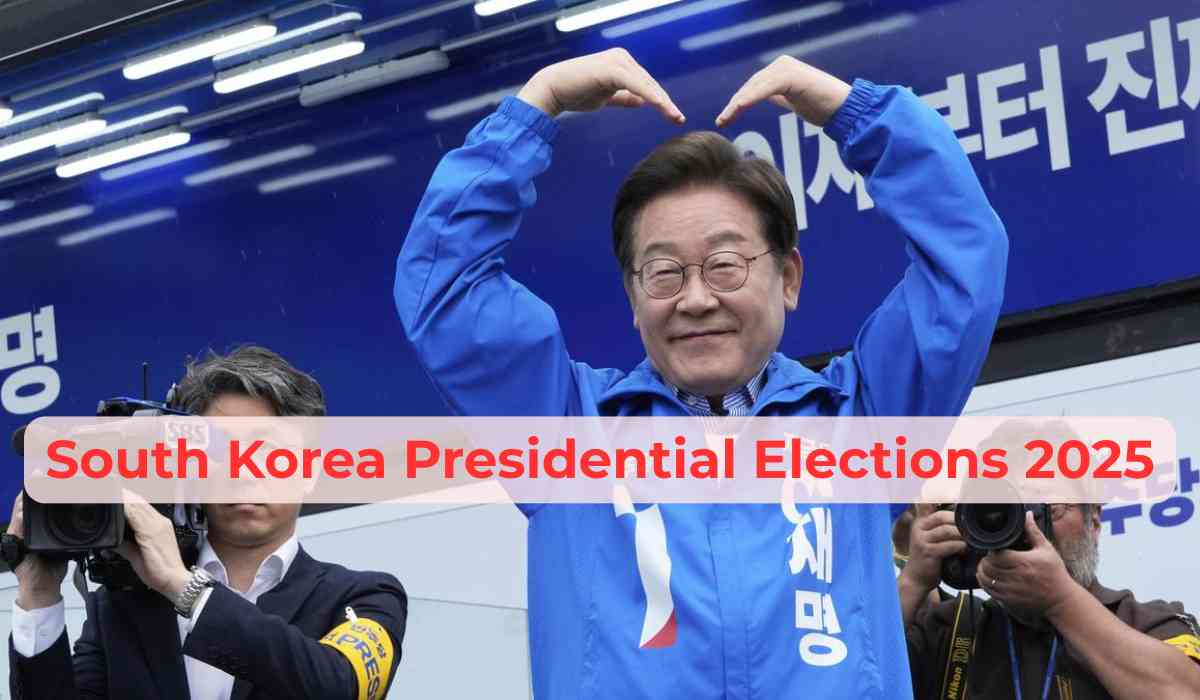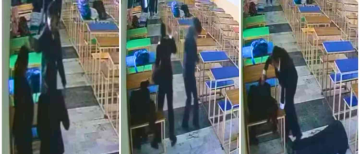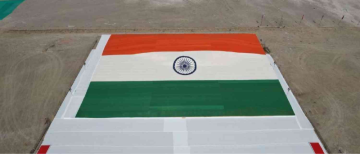Lee Jae-myung, leader of the opposition Democratic Party of Korea, is set to become South Korea’s 14th president after securing a decisive win in the 2025 snap election. The vote came in the wake of former President Yoon Suk-yeol’s controversial and short-lived martial law declaration, which resulted in his impeachment and removal from office in April.
With over 85% of the ballots counted, South Korea's National Election Commission (NEC) reported that Lee was leading with more than 48% of the votes, comfortably ahead of his main challenger Kim Moon-soo of the conservative People Power Party (PPP), who garnered 42.9%. Although final certification was pending, Kim conceded defeat and congratulated Lee.
“I will humbly accept the choice of the people. Congratulations to the elected candidate Lee Jae-myung,” Kim said.
The voter turnout reached 79.4%, the highest since 1997, with nearly 80% of the country’s 44.4 million eligible voters casting their ballots. Lee’s supporters gathered outside his residence in Seoul and at the National Assembly, celebrating the anticipated win with chants of his name.
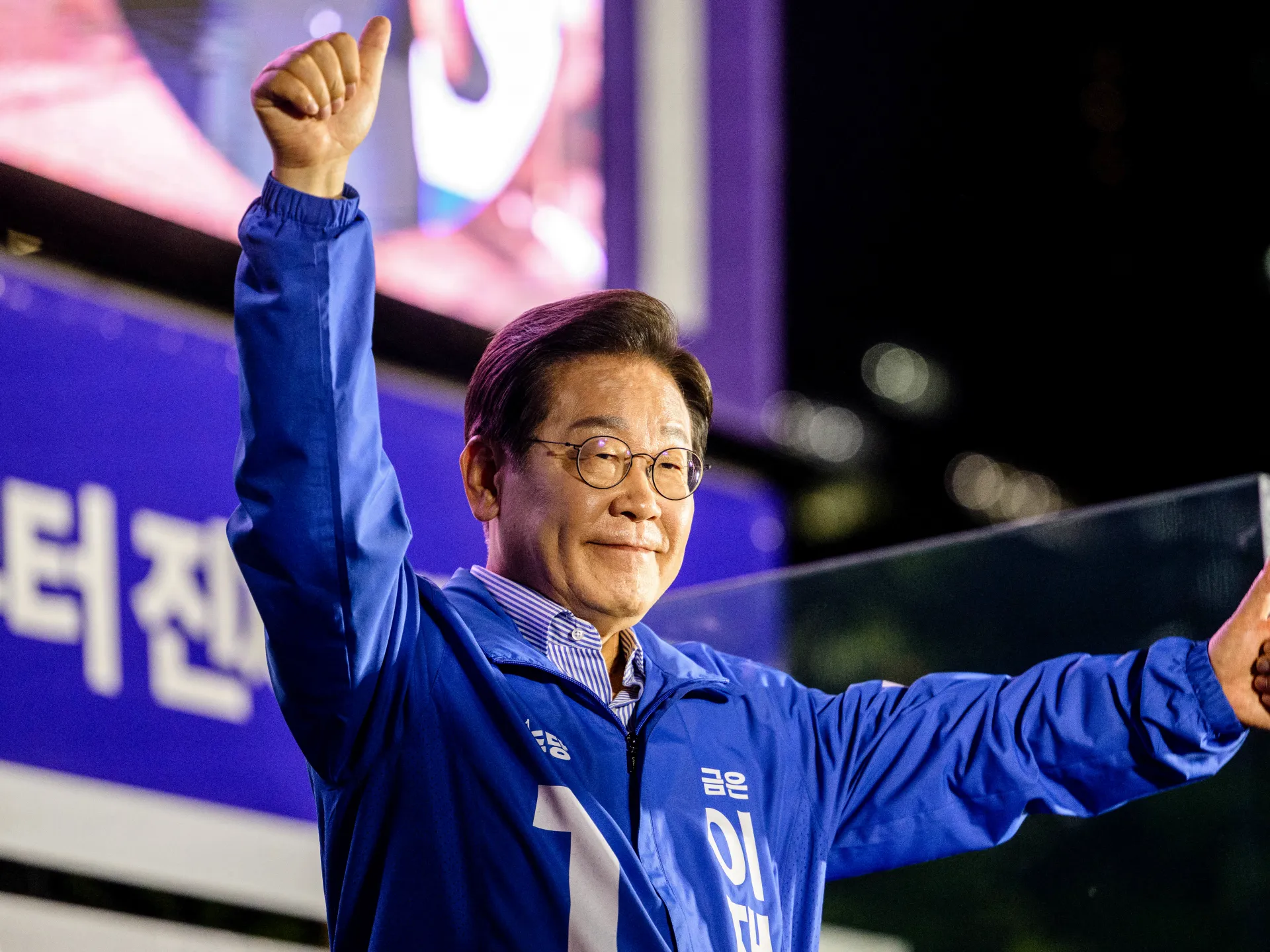
Fast-Tracked Inauguration: Lee Takes Office Immediately
In a break from tradition, Lee is scheduled to take the oath of office on Wednesday morning, immediately following vote validation. Normally, a two-month transition precedes the swearing-in, but the recent political instability necessitated a rapid transfer of power.
The NEC's certification process is expected to take no more than 10 minutes. Once completed, Lee will assume presidential responsibilities, marking a swift end to the months of interim leadership.
Who Is Lee Jae-myung?
Lee, 61, is a former governor of Gyeonggi Province and ex-mayor of Seongnam, near Seoul. A human rights lawyer-turned-politician, Lee has long been a polarizing figure. This victory marks his third run for the presidency—his last bid in 2022 resulted in a narrow loss to Yoon Suk-yeol, the closest margin in South Korea’s democratic history.
Since then, Lee led the Democratic Party to a landslide legislative victory and spearheaded the opposition-led impeachment of Yoon after the martial law crisis. During the six-hour period when martial law was in effect, Lee scaled the National Assembly walls to evade military barricades, livestreamed his defiance, and called on citizens to resist.
Despite being embroiled in five ongoing legal trials related to corruption and other criminal allegations—which he has vehemently denied as politically motivated—Lee has managed to consolidate public support by positioning himself as a bulwark against authoritarianism.
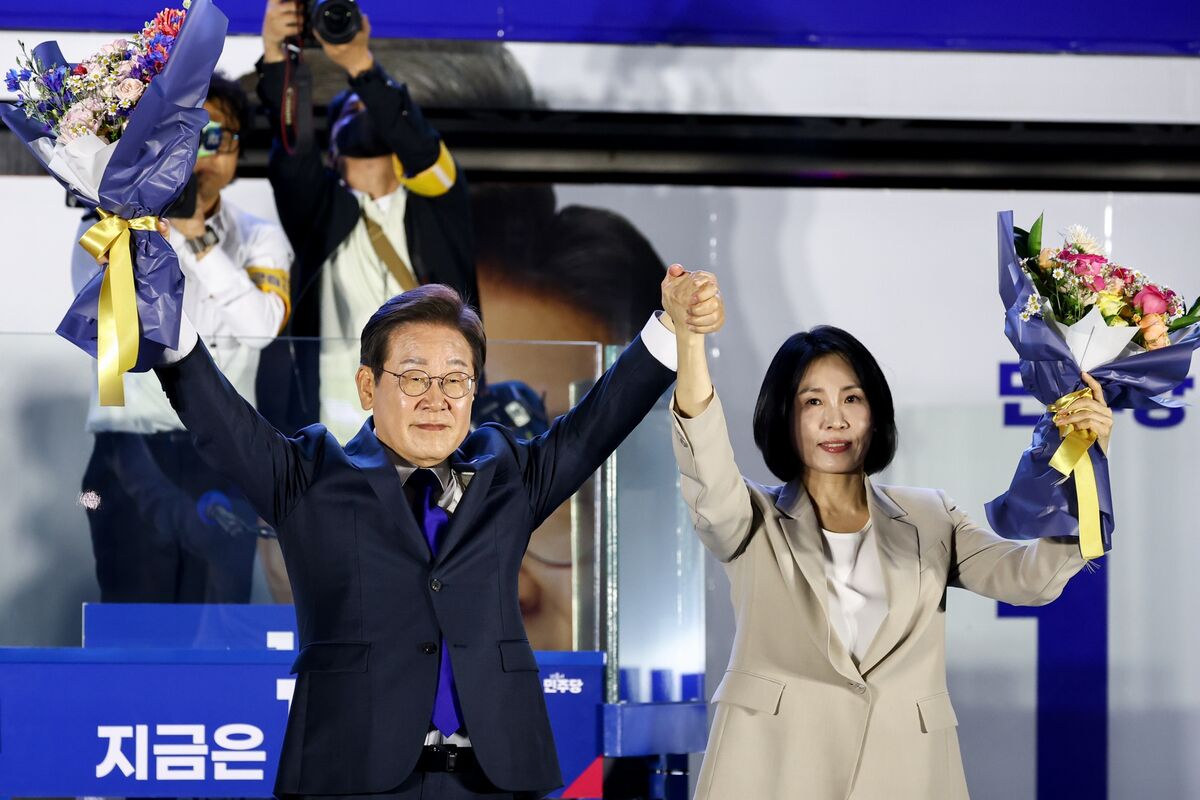
Lee's Vision for South Korea
Lee's policy priorities span domestic reforms and foreign diplomacy:
Domestic Agenda
-
Fixing Economic Inequality: South Korea faces deep-seated income disparities, and Lee has promised to implement economic reforms that benefit the broader population.
-
Work-Life Balance: He advocates for a 4.5-day workweek to combat the nation’s notoriously high work stress.
-
Strengthening Democracy: Lee has vowed to hold those responsible for the martial law bid accountable and push for tighter legal controls on future presidential powers.
Foreign Policy Outlook
-
U.S. and Japan Relations: Lee upholds the U.S.-Korea alliance as “foundational” and has committed to strengthening the Seoul-Washington-Tokyo trilateral partnership.
-
Patience with U.S. Trade Policy: Unlike some hawks in his party, Lee urges caution in negotiating trade agreements, particularly in light of U.S. President Donald Trump’s ongoing “America First” stance.
-
Dialogue with North Korea: He promises to reopen communication channels with Pyongyang, restore military hotlines, and revive denuclearization talks, signaling a significant departure from Yoon’s aggressive posture.
Fallout from Martial Law and PPP Disarray
The election was widely seen as a referendum on Yoon Suk-yeol’s authoritarian overreach. His declaration of martial law, which involved deploying armed soldiers to block parliament, shocked the nation and ultimately led to his impeachment—the second for a conservative president in less than a decade, after Park Geun-hye in 2017.
Yoon’s impeachment left the PPP in turmoil. Infighting marred their ability to present a united front:
-
The party initially tried to replace Kim Moon-soo with former Prime Minister Han Duck-soo.
-
Kim’s nomination was canceled and later reinstated amid backlash.
-
The conservative bloc’s vote was further diluted by Lee Jun-seok of the New Reform Party, who refused to step aside.
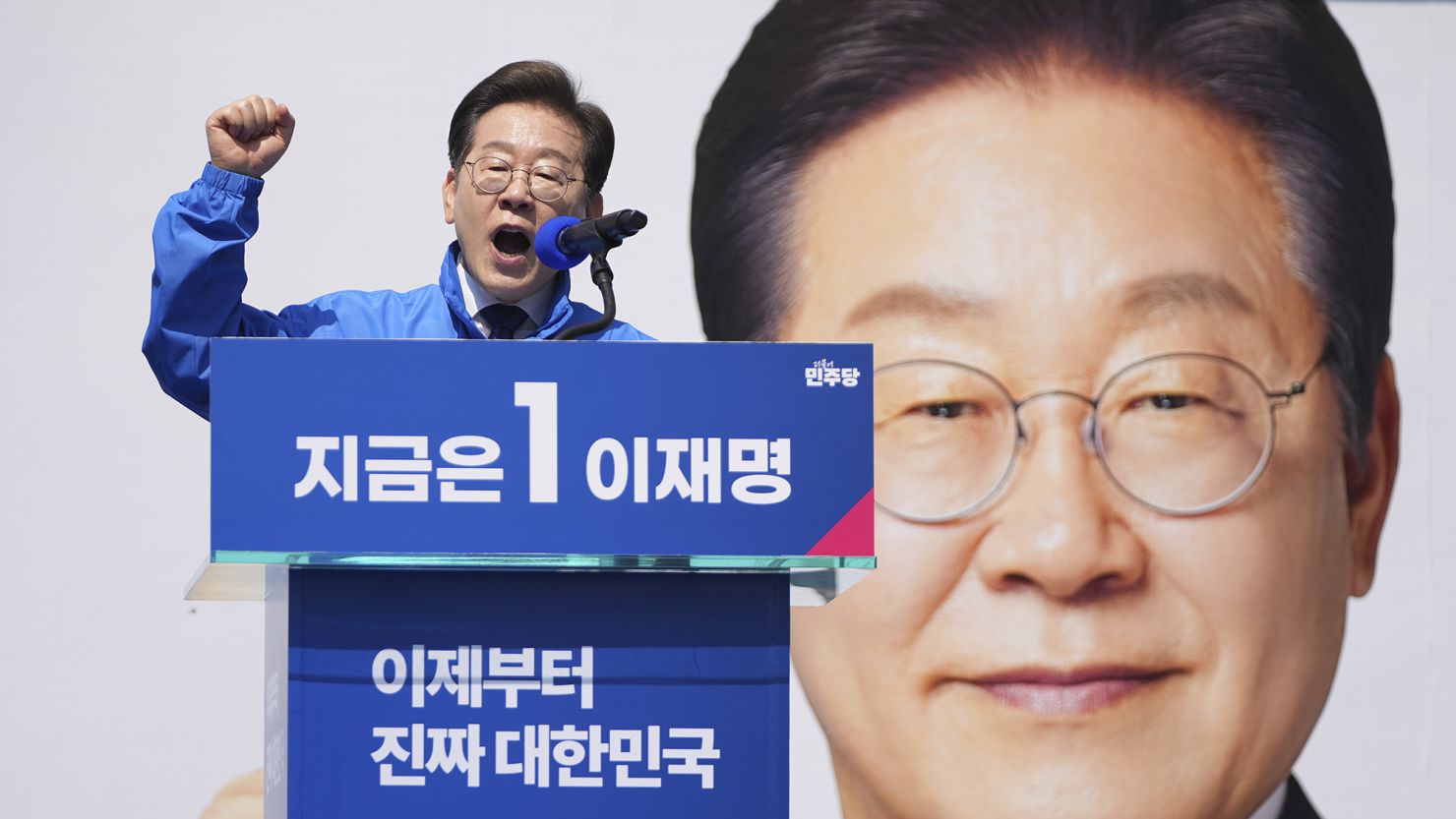
What Lies Ahead for President Lee?
Lee faces a daunting list of immediate challenges:
-
Reviving dialogue with North Korea amid rising tensions and a rapidly expanding arsenal in Pyongyang.
-
Navigating global trade uncertainty, especially with the United States under Trump’s second term.
-
Addressing South Korea’s demographic crisis, including one of the lowest birth rates in the world.
-
Healing a deeply polarized nation, as partisan divides widened by Yoon’s martial law decision continue to simmer.
Given the high security risks—especially after a failed assassination attempt last year—Lee has been campaigning in a bulletproof vest and speaking behind glass shields. Police are on high alert, deploying thousands of officers to secure the election aftermath and inauguration ceremonies.
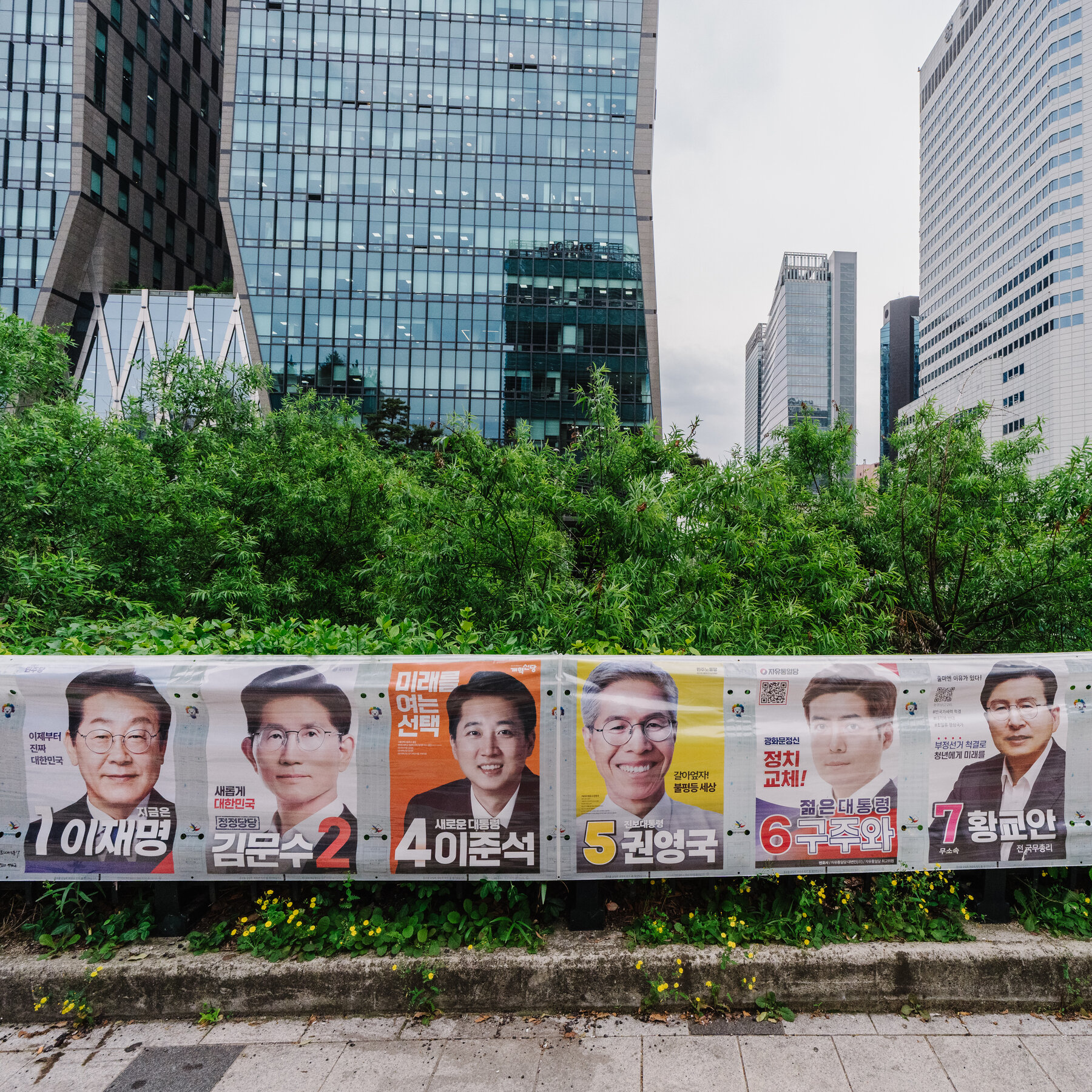
A Defining Moment in Korean Democracy
Lee Jae-myung’s rise to the presidency is emblematic of South Korea’s democratic resilience. Despite legal troubles, political divisions, and institutional chaos, the country has demonstrated its commitment to electoral processes and constitutional norms.
As Lee takes office, he carries the weight of public expectation and the responsibility to steer South Korea through economic headwinds, geopolitical volatility, and political healing.
Whether his presidency marks a genuine transformation or merely a pause in a turbulent political cycle remains to be seen—but for now, South Koreans have made their voices heard.
With inputs from agencies
Image Source: Multiple agencies
© Copyright 2025. All Rights Reserved Powered by Vygr Media.

